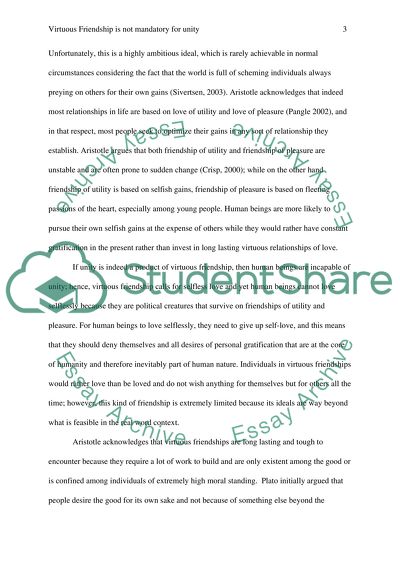Cite this document
(“Friendship Essay Example | Topics and Well Written Essays - 1000 words - 2”, n.d.)
Retrieved from https://studentshare.org/philosophy/1656900-friendship
Retrieved from https://studentshare.org/philosophy/1656900-friendship
(Friendship Essay Example | Topics and Well Written Essays - 1000 Words - 2)
https://studentshare.org/philosophy/1656900-friendship.
https://studentshare.org/philosophy/1656900-friendship.
“Friendship Essay Example | Topics and Well Written Essays - 1000 Words - 2”, n.d. https://studentshare.org/philosophy/1656900-friendship.


